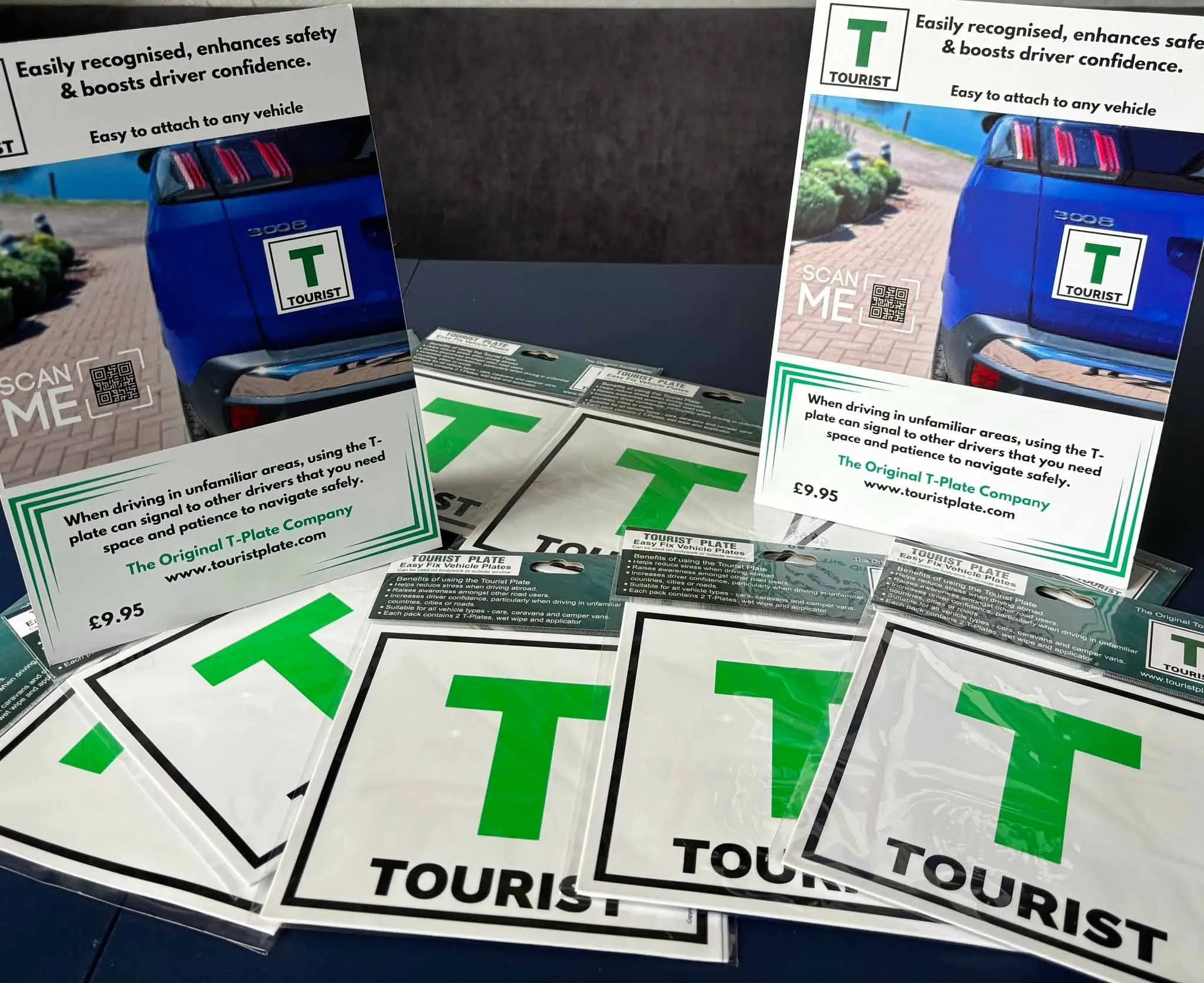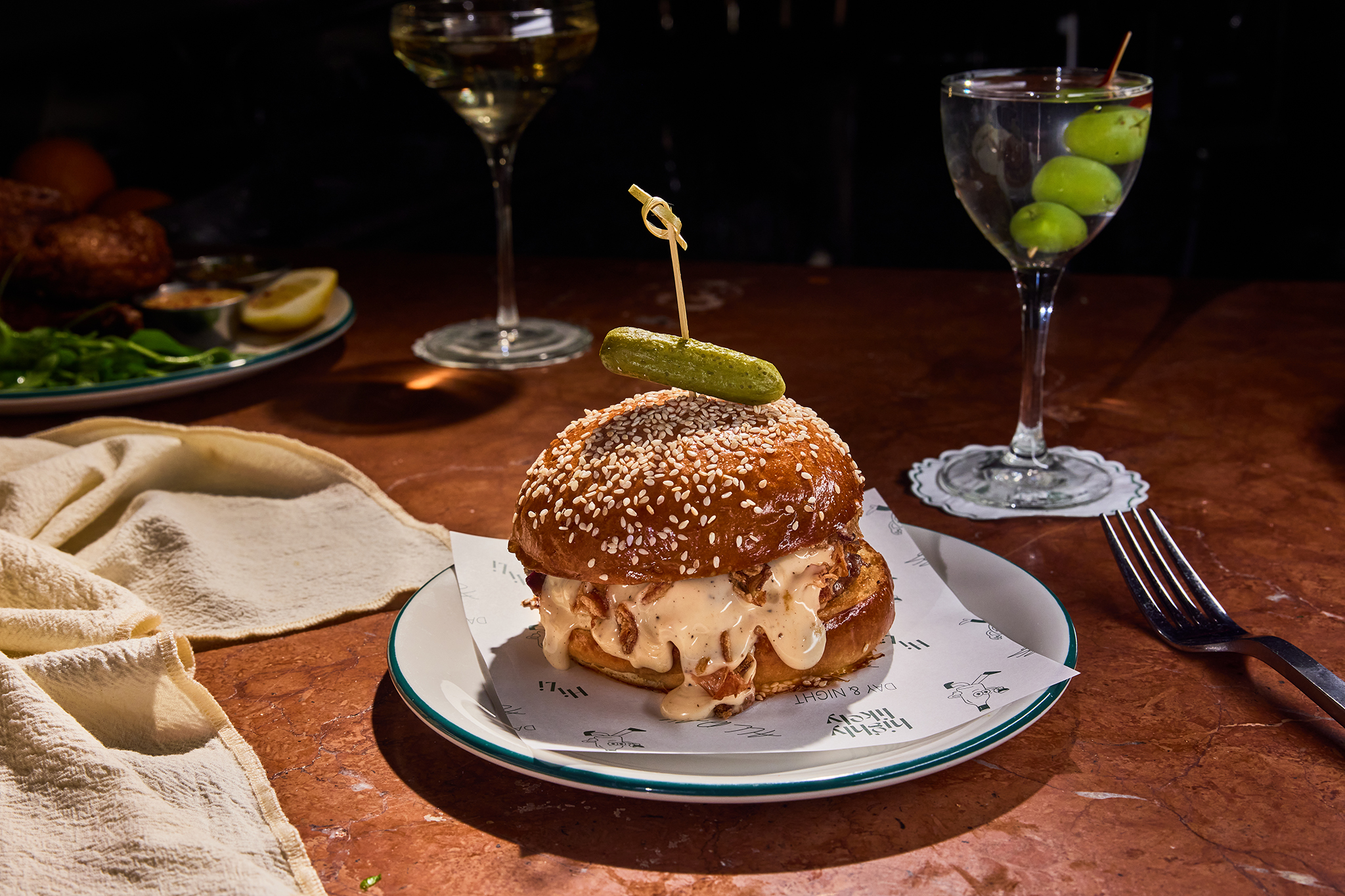By Alice Murphy
Copyright metro

The signs feature a green letter ‘T’ and have ‘tourist’ written at the bottom (Picture: The Tourist Plate/ Facebook)
After months of anti-tourist rules across the Mediterranean, holidaymakers in Scotland are now being encouraged to stick ‘T’ plates on their cars.
International visitors driving in the Scottish Highlands have been asked to display this new twist on traditional ‘L’ plates in a bid to reduce accidents.
The signs, which feature a green letter ‘T’ and have ‘tourist’ written at the bottom, are designed to signal that the driver is unfamiliar with the roads.
It comes after Transport Scotland warned of an increase in crashes caused by ‘inexperience of driving on the left’.
The plates were created by Robert Marshall, a hotel owner from Kingussie.
He came up with the idea after his own ‘awful’ experience driving in Tenerife, which he said left him ‘completely stressed out of my head’.
Visitors to the Scottish Highlands have been asked to display this new twist on traditional ‘L’ plates (Picture: The Tourist Plate)
Robert told BBC’s Good Morning Scotland that he spent the journey screaming at his partner that he wished everyone around them knew he was a tourist.
‘Just reaching roundabouts, junctions, just starting the journey initially, I was on the wrong side of the road, every control and dial was in a different place,’ he said.
‘That’s when the idea for T Plate came to me – a symbol to let others know ‘we’re visitors here’.’
Would you display ‘T’ plates on your car?
YesCheck
NoCheck
Fuel your wanderlust with our curated newsletter of travel deals, guides and inspiration.
I agree to receive newsletters from Metro
I agree to receive newsletters from Metro
Sign UpSign UpThis site is protected by reCAPTCHA and the Google Privacy Policy and Terms of Service apply. Your information will be used in line with our Privacy Policy
Laura Hanser, a road safety campaigner with the A9 Dual Action Group, has tested the plates on the roads. And in her view, they do exactly what they’re intended to.
‘I went out on a single carriageway at 50mph. I would let different vehicles catch up with me,’ she told the BBC.
‘You were very aware of a couple of seconds until they acknowledged that and there was a definite pull back, in acknowledgement that that plate was on your car.’
Transport for Scotland has confirmed the plates are legal to display.
Travel experts and local campaigners say infrastructure in the Highlands is under severe strain from mass tourism.
Case in point, the popularity of the North Coast 500 is now a double-edged sword.
Sunrise at Loch Eriboll on the far north coast of Scotland (Picture: Getty Images)
The route, which is known as the ultimate road trip, was part of a scheme to boost footfall in Scotland’s remote northern regions.
Often compared to Route 66, the loop soon went viral. Top Gear visited, and tourists flooded in to capture the stunning scenery and resident roadside deer for Instagram.
Traffic jams, car accidents and litter came with them. This year, Fodor’s listed the NC500 in its 2025 ‘No List’ of places to avoid, due to its ‘untenable popularity’.
The new ‘T’ plates are intended to reduce accidents and have been welcomed by road safety campaigners.
But further south in Italy, Spain and Greece, anti-tourist rules have provoked anger from some holidaymakers.
Last week, Brits said they would stop travelling to Spain if a proposed ban on smoking and vaping is enforced.
@travelwithmetro Note to self, don’t pack the speedos. #france #frenchholiday #beach #lessablesdolonne ♬ Swimming – Flawed Mangoes
The bill, introduced on September 9, proposes to ban the use of vapes, e-cigarettes, and cigarettes across outdoor venues, including bars and restaurants, bus stops, stadiums and, most importantly for Brits: beaches.
Smoking and vaping has become increasingly popular with young people, with NHS research revealing nearly 10% of children in the UK aged 11 to 15 vape frequently.
It’s a problem in Spain too, alongside statistics from the country’s health ministry showing more than 50,000 people die there each year from smoking-related causes.
The Spanish health minister, Monica Garcia, told reporters: ‘We’ll always put public health ahead of private interests. Everyone has a right to breathe clean air… and live longer and better lives.’
Would you stop going to Spain if they banned vaping on beaches?
YesCheck
NoCheck
Fuel your wanderlust with our curated newsletter of travel deals, guides and inspiration.
I agree to receive newsletters from Metro
I agree to receive newsletters from Metro
Sign UpSign UpThis site is protected by reCAPTCHA and the Google Privacy Policy and Terms of Service apply. Your information will be used in line with our Privacy Policy
Spanish pubs and restaurants have pushed back against this move due to the popularity of smoking on their outdoor terraces.
While France implemented similar measures in July, its cafe terraces were exempt from the change.
The bill will need to be approved by the Spanish cabinet before it comes into effect, but it’s already proving controversial.
‘It is unfortunate news for bars and restaurants that will now face a ban on customers who will stop going to consume on the terraces,’ said @katxo on X.



